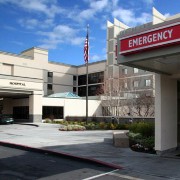 Photo: Getty Images
Photo: Getty Images
There’s not usually an outcry upon being told one is well enough to go home from the hospital. Hospitals are generally loud, unsanitary places where a good night’s sleep is a mere hope, a quality roommate is a crap shoot and being woken up over and over to have vitals taken is enough to drive anyone to the brink of exhaustion.
For these and other reasons, the number of patients leaving against medical advice (AMA) has risen by 40 percent in the last dozen years. Those other reasons include not having medical insurance that pays for the hospital stay, not having sick leave from work, and not having alternative care for children or elderly relatives at home, or the money to pay for it. In short, it’s simply too expensive (in many ways) to stay in hospital until doctors advise it’s safe to leave.
Problems can arise from leaving early. For some, it means that their insurance company can refuse to pay for any part of the stay. Doctors may refuse to continue to treat a patient in an outpatient capacity for fear of being sued if the patient suffers a setback (or worse) from leaving the hospital early. And that leaves the ultimate penalty – leaving early can open a person up to illnesses returning, or left half-treated and the chance that it could be serious or even fatal.
For some patients, leaving early is a smart move. They are educated about why they were there in the first place and do not wish to partake in an endless battery of testing that may be unnecessary but done so that the hospital and its staff are covered legally. Others are rightfully fearful about infections like MRSA, urinary tract infections, C.Diff or VRE. These infections are not uncommon and can impact a person for years, or kill them.
Noisy roommates with loud families are also tough to deal with. Staying the night with a loved one in her hospital room is a nice thing to do on paper, but not when the visitor snores his way through the night, brings a stinking late night meal into the room or talks endlessly on a cell phone (be aware that as a patient you have the right to ask someone to leave if they interfere with your rest/recovery). The simple fact is that hospitals are highly unpleasant places to be, and people generally leave exhausted from a lack of sleep. Besides, nothing can replace the comfort, cleanliness and familiarity of home.
Most people do wait until medically advised to leave, but the stresses of remaining in hospital, as well as the outcome from not being at home/work are generally cited as the main reasons for leaving AMA. Tens of millions in the United States have no health insurance and hospital stays for minor issues can cost hundreds or thousands per day. In fact, the average stay in hospital is about $7,000 per day--an astronomical amount for anyone financially comfortable, and unimaginable and inconceivable for the rest. People are willing to take a chance that they’ll get better at home – and fast. Patients without sick leave or childcare are stretched (and stressed) to their limits with even a two-day stay, making anything longer virtually impossible. And for others – they simply hate hospitals.
Making this decision can have serious consequences or can save a person thousands of dollars, and a potentially deadly infection. It’s a tough judgment call but approximately 400,000 patients chose to do this every year. Whether or not it’s the right thing to do is something no one can predict in advance.
Tell Us
Have you ever checked out early from a hospital? Did you have regrets or do you feel you were better off at home?




Add a CommentComments
There are no comments yet. Be the first one and get the conversation started!